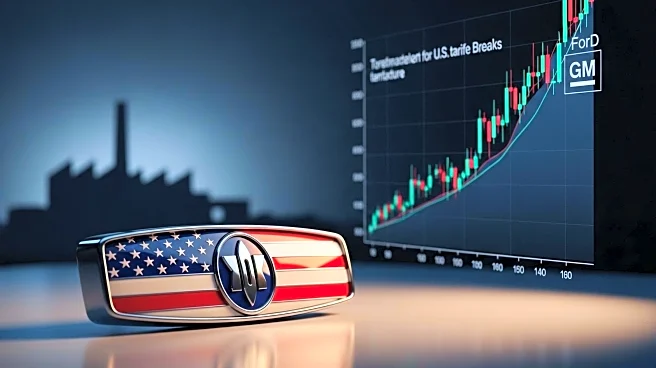What's Happening?
President Trump is contemplating a plan to reduce the cost of manufacturing cars in the United States by offering tariff relief to automakers that build or assemble most of their vehicles domestically. This initiative aims to incentivize companies to hire U.S. workers and maintain local production. Automakers such as Ford, General Motors, Tesla, Toyota, and Honda, which already have significant assembly operations in the U.S., stand to benefit the most. The proposal suggests maintaining a 3.75% import offset for cars assembled in the U.S., potentially extending it to engines made domestically. This move is expected to separate automakers that import vehicles from those that produce them locally.
Why It's Important?
The proposed tariff relief could significantly impact the U.S. automotive industry by lowering production costs and improving profit margins for domestic carmakers. This aligns with President Trump's trade strategy to encourage local manufacturing. If implemented, the plan could mitigate the effects of the 25% tariffs imposed on imported vehicles and parts, which have been a financial burden on companies like General Motors and Ford. The initiative could also prompt global automakers to expand their U.S. production facilities, potentially boosting employment and economic activity in the sector.
What's Next?
The White House has yet to finalize the details of the tariff relief plan, including whether it will cover steel and aluminum imports, which are crucial for car manufacturing. The administration is also reviewing the economic impact of tariffs on heavy-duty trucks. Until President Trump signs the proposal into law, the automotive industry and investors remain in anticipation of the potential changes. If the plan is enacted, it could further solidify the U.S. as a hub for automotive production, aligning with the administration's broader economic goals.









